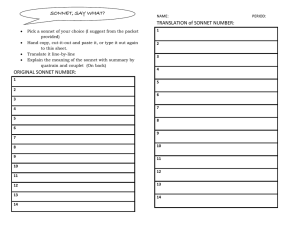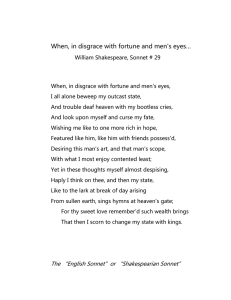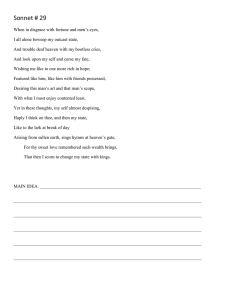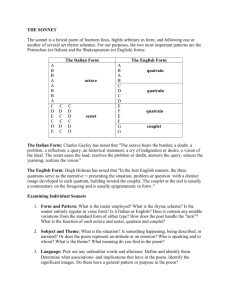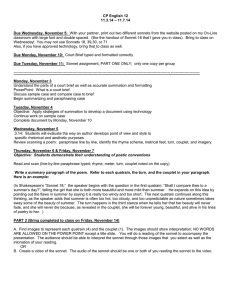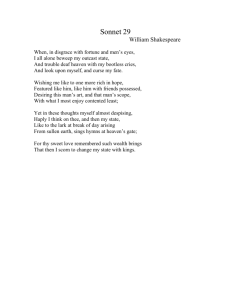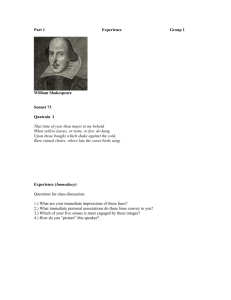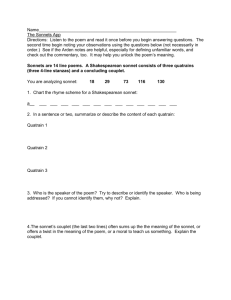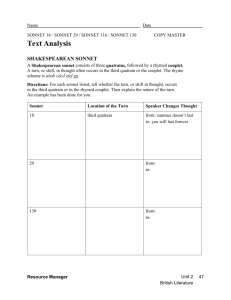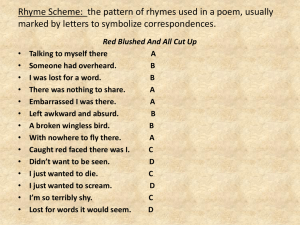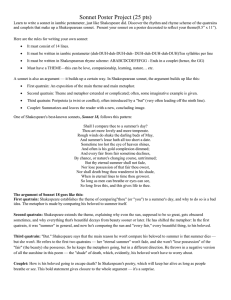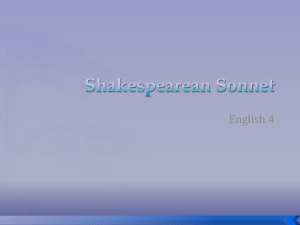Document
advertisement
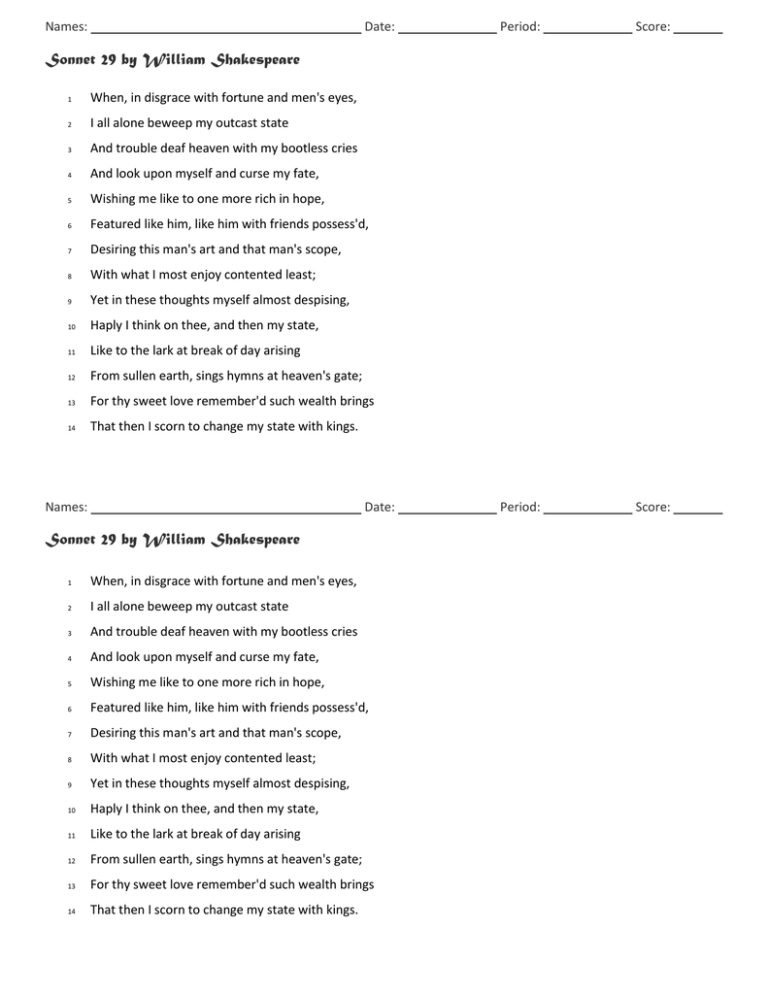
Names: Date: Period: Score: Period: Score: Sonnet 29 by William Shakespeare 1 When, in disgrace with fortune and men's eyes, 2 I all alone beweep my outcast state 3 And trouble deaf heaven with my bootless cries 4 And look upon myself and curse my fate, 5 Wishing me like to one more rich in hope, 6 Featured like him, like him with friends possess'd, 7 Desiring this man's art and that man's scope, 8 With what I most enjoy contented least; 9 Yet in these thoughts myself almost despising, 10 Haply I think on thee, and then my state, 11 Like to the lark at break of day arising 12 From sullen earth, sings hymns at heaven's gate; 13 For thy sweet love remember'd such wealth brings 14 That then I scorn to change my state with kings. Names: Date: Sonnet 29 by William Shakespeare 1 When, in disgrace with fortune and men's eyes, 2 I all alone beweep my outcast state 3 And trouble deaf heaven with my bootless cries 4 And look upon myself and curse my fate, 5 Wishing me like to one more rich in hope, 6 Featured like him, like him with friends possess'd, 7 Desiring this man's art and that man's scope, 8 With what I most enjoy contented least; 9 Yet in these thoughts myself almost despising, 10 Haply I think on thee, and then my state, 11 Like to the lark at break of day arising 12 From sullen earth, sings hymns at heaven's gate; 13 For thy sweet love remember'd such wealth brings 14 That then I scorn to change my state with kings. Sonnet 29 by William Shakespeare Can your group understand the major ideas by breaking the poem down into its three quatrains and couplet, and summarize the meaning expressed in each of the parts? Parts of poem Major Idea 1st quatrain 2nd quatrain 3rd quatrain couplet Question: What changes the speaker’s mood in “Sonnet 29”? Sonnet 29 by William Shakespeare Can your group understand the major ideas by breaking the poem down into its three quatrains and couplet, and summarize the meaning expressed in each of the parts? Parts of poem Major Idea 1st quatrain 2nd quatrain 3rd quatrain couplet Question: What changes the speaker’s mood in “Sonnet 29”?
